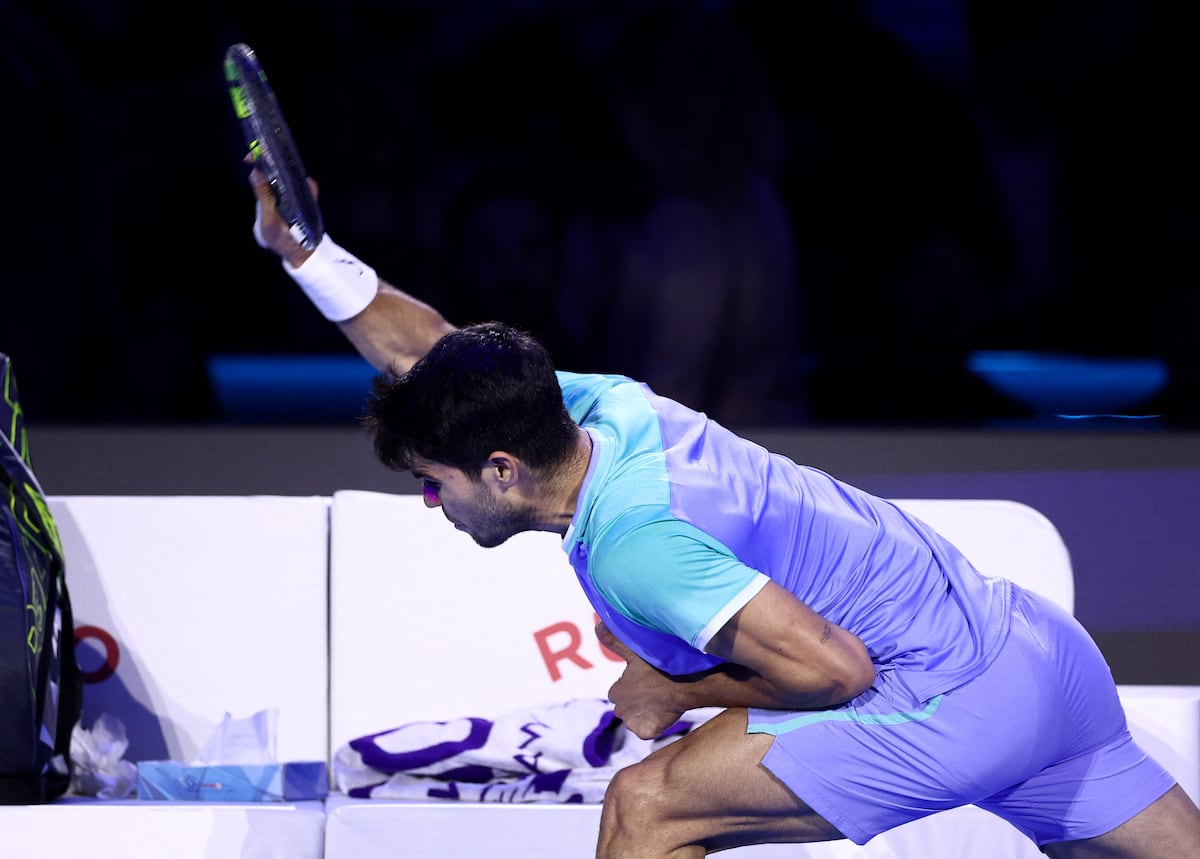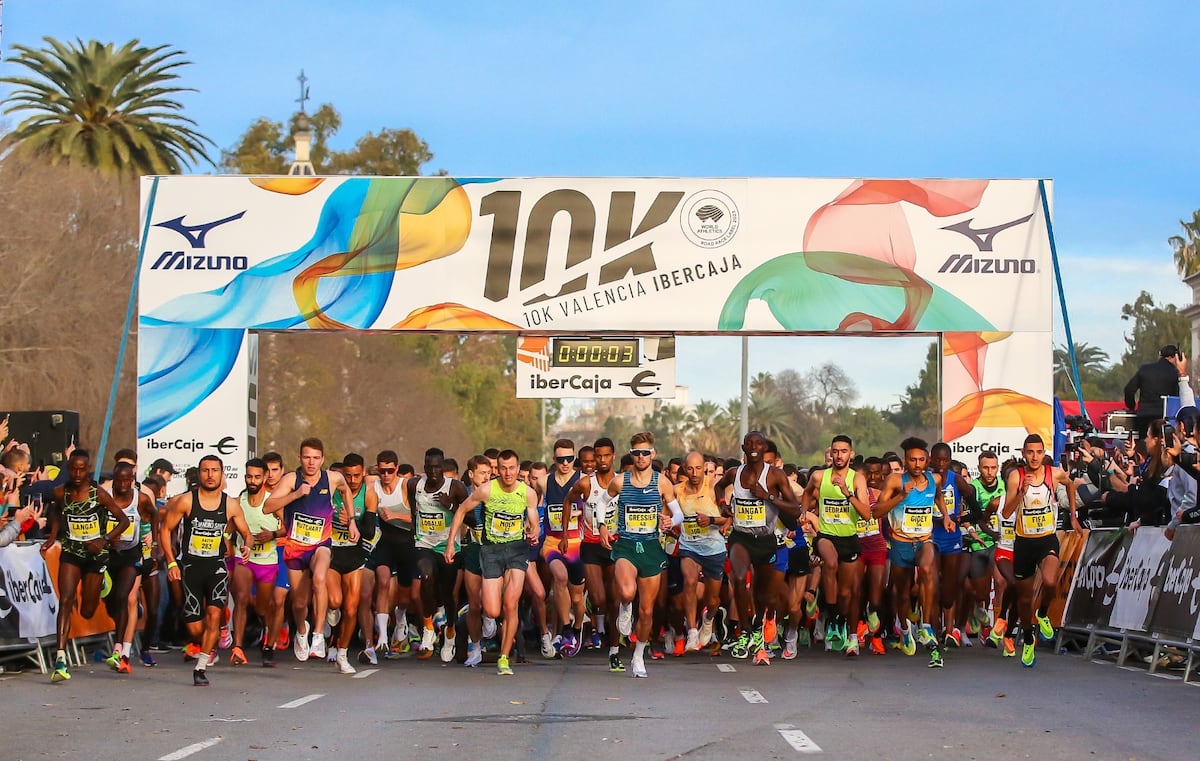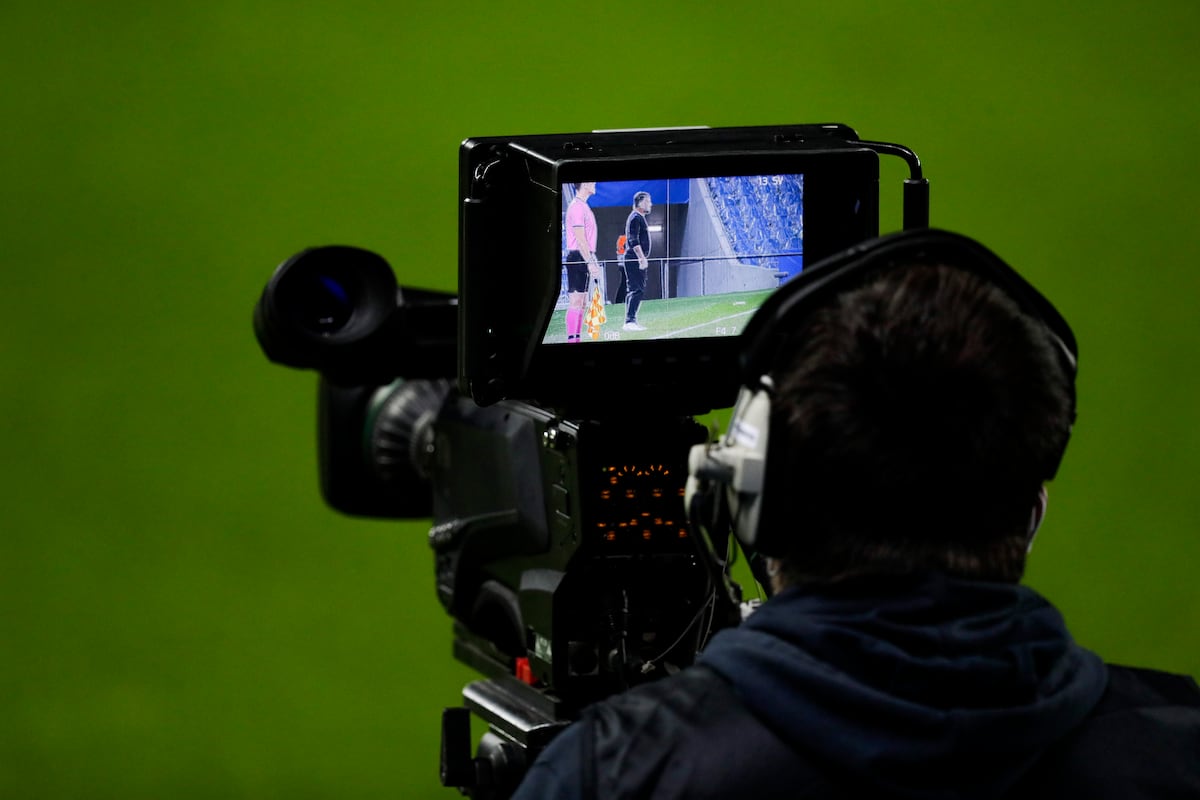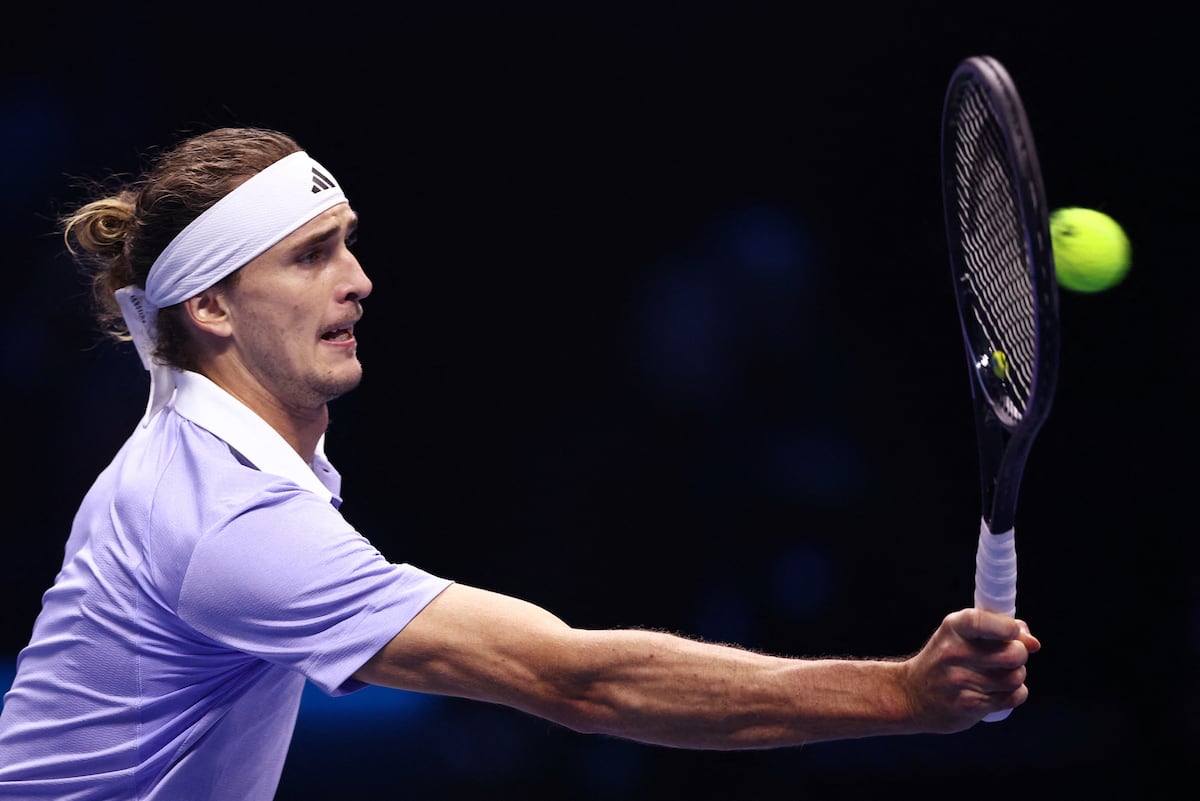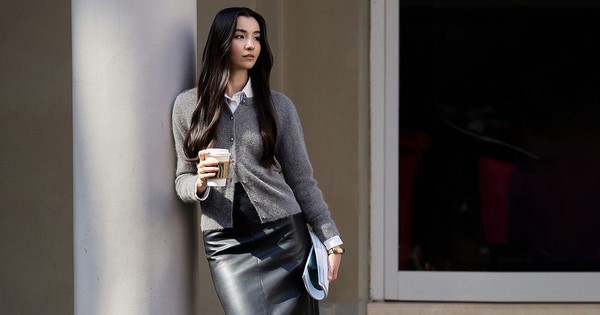The furious shout and the impact of the racket against the bag when giving up the first set summarize this second step by Carlos Alcaraz through Turin, where he arrived with a cold and with a bad temper, between sweats, congestion, bad sleep and drugs. Just enough energy, he said. And the Murcian says goodbye, beaten by Alexander Zverev in the last episode of the group (7-6 (5) and 6-4, in 1h 57m) and without any account to do, because whatever happens in the night match happens , Casper Ruud against Andrey Rublev (20.30), he is already out of the equation, with no possibilities. There is no calculation that is worth number two, upset and reduced by a behemoth that has taken his measure, 6-5 for the German in the individual crosses and already classified for the semifinals.
He wants to get closer to the ointment of the Zverev summit, to that path of success opened by Jannik Sinner and the Spaniard on the biggest stages, and offers a firm or at least intimidating step. It remains to be seen if its growth – not yet completely extrapolated to the territory of the majorsa pending notch after two lost finals—and his spirit has continuity. He progresses and heads towards the Alcaraz Turin exit, bounced and upset after having missed the train, because at a bad time he got sick, he thinks and thinks; heading towards Malaga after a chapter in which the blows and the tower’s excellent performance with the serve have forced him to fight for too long from the trenches.
Alcaraz does not start at all well, with the occasional inaccuracy that opens the door a few times to Zverev, the German all arms and all legs, impressive that lever he draws when serving. The sharp hits of the ball resound every time the ball crashes violently against the advertising support, this is a sufferer: Pam! Hollow sounds, bluish light, tension in the atmosphere and two mallets hitting him very hard, as if they were giving out a prize for breaking the sphere. The one from Hamburg squeezes and squeezes, and as he approaches the net he becomes big, very big, immense because his extremities close all the gaps, except for the one that the Spaniard finds with a formidable backhand pass.
“Your job is well done, eh?” he says from the boxes Ferrero, cap down, the same trajectory that the ball adopts when Zverev moves, sets up the shot and responds with a flat shot that goes deep into the side, as if it were easy. Alcaraz’s approach is not easy, as he now looks better – the medication has taken a long time, but it has finally taken effect – and, given the situation, he hides in the background and resorts to defense, waiting for that at one time or another, the rival may lower the piston and there may find the gap that does not exist at the moment. There are no cracks, so it’s time to paddle. It doesn’t seem to be a day (a tournament, really) for poetry.
The giant hammers and he competes in tow, without losing his place but in a hurry, demanding all the time, trying not to break the thread of the match because against the current, the slightest misstep would be even more complicated. So he puts the racket firmly and repels as best he can, uncomfortable with that strip that he shows again on his nose and, above all, very patient, because the blasts at the rest do not stop. The bombardment does not stop nor does Zverev, a bigard who makes the tool small, as if it were a toy, let up. Hit and hit and Alcaraz holds on, trying to figure out how to deactivate that service that no longer has defects. The burden of double faults has disappeared.
With peaks of more than 230 kilometers per hour and an average around 220, true beastliness, the German, 27 years old, sets the pace and the one in front of him, 21, can only resign, wait and play the cat. The Murcian contorts acrobatically and returns those he catches, but on many occasions, too many, the wake is impossible to intercept. As I said: protect yourself from the downpour and hope that it eventually clears up. “No rush!” shouts his technician. “Nice push there!” “Bold back there, there is a lot of room And, indeed, “there” he continues without turning his face and shield in hand, saving that first set ball and surviving until the fate of the tiebreaker, turn for the deli.
He throws a wonderful blow, pure venom, but then he hits another brutal one from the German and begins to irremediably give ground until he gets up and traces a delicious parabola with his backhand, so neat and so perfect, so architectural, that he manages to overcome the almost two meters of the blonde colossus, three actually because the extension of the racket must be added to the stem. Then comes the explosion, that roar that competes with the venue’s thunderous public address system, louder and louder: “Nooooooo!” The endless grunt is accompanied by a good handful of gestures: why, why, why did it happen, he curses, regretting the misreading he makes of that painful exchange.
He remains rooted to the court and looks at his coach without blinking, and goes to the chair like a basilisk. Hot. The anger drags to the restart, a gross mistake, as human as it is a penalty, and the cost is high because the conceded break poses an even more difficult, harsh and hostile scenario, by going behind – with a certain Zverev serving – and giving up games, remembering that in a tournament like this every point counts and that they are beginning to have one foot outside of Turin. Even so, he manages to find an opportunity to reengage, but everything is awry: his right hand, a golden weapon, squeaks three times —homerun the first of them—when he has the breakso there is no way.
“Always on the net, always!” he punishes himself. “Calm down!” they try to temper him from the boxes. But it wasn’t the day, it wasn’t the week. It wasn’t this Masters Cup. Zverev, on to his thing. Alcaraz arrived sick and left still surrounded by tissues and mucus, with monumental anger. The harsh reality of the end of the year event.

